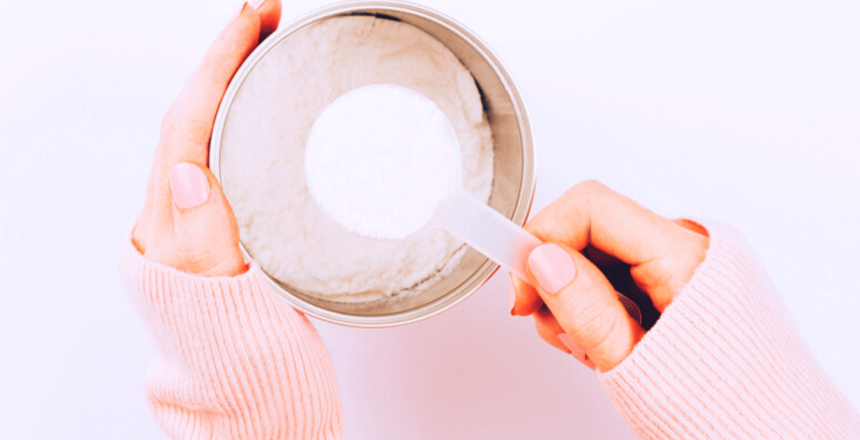PCOS sufferers have a myriad of supplements and medications they can take to help address their root cause (or causes) and allow them to overcome their symptoms. One such option used to help those dealing with the constant state of hormonal imbalance is inositol. But what exactly is inositol, and how can it help with PCOS and gestational diabetes?
What is Inositol?
As some of you may know, women with PCOS have issues with insulin function, leading to insulin resistance. Inositol is a type of sugar alcohol that aids in the insulin response to help correct it. Inositol can be found in foods such as cereals, meat, citrus fruits, legumes and corn. It used to be considered an essential B vitamin, however we now know that we can actually make inositol inside the body and therefore it is more referred to as a pseudovitamin. Along with its direct influence on insulin, inositol also helps stabilize certain hormones that balance mood and maintain adequate cognition.
While that may seem impressive on its own, inositol can also act as an antioxidant, fighting within the body against free radical buildup that can lead to inflammation. This inflammation, if left unchecked, can negatively affect the health of the brain, circulatory system, and bodily tissues. Furthermore, we know that chronic inflammation contributes to various chronic illnesses, including (but not limited to) PCOS.
4 Types of Inositol:
Inositol supplements come in capsule or powder forms. Typically to reach a therapeutic dosage of inositol, we tend to stick to the powdered form. When it comes to supplements, there are often various forms of one nutrient – therefore it is helpful to consult with your naturopathic doctor to understand which form is right for you. When it comes to inositol, there are 4 main stereoisomer forms.
- Myo-Inositol: Plays an active role in blood sugar level stabilization
- D-chiro inositol: Helps stabilize glycogen synthesis
- Inositol Hexaphosphate: Also called IP-6, this form is naturally occurring in foods.
- Inositol Niacinate: A compound version made with vitamin B3 and inositol used to treat disorders of the circulatory system
While all four types are considered inositol, they each play very different roles in bodily health for people who are struggling with symptoms of PCOS. Myo-inositol and D-chiro inositol are the two forms that are most relevant when it comes to supplementation.
Adverse Reactions to watch out for:
In my patients, inositol is typically well tolerated when dosed correctly. However there are cases where effects such as diarrhea, gas and nausea can occur. This is why I typically prescribe inositol in divided doses. Some practitioners may advise you to take inositol with food to avoid some of these potential effects, however being that inositol is a sugar alcohol, it is best absorbed on an empty stomach.
With any supplement – it is important to first consult a licensed practitioner, as sometimes adverse effects can occur and
How does inositol help with PCOS?
Since women with PCOS often suffer from insulin resistance, using inositol as a form of treatment has been shown to help improve insulin levels. Put simply, inositol acts as a backup system in the body to keep blood sugar levels balanced when the insulin isn’t performing as it should. Other benefits of using inositol, if used properly & if you have PCOS include:
- Proper ovulation
- Reduction of male hormones (androgens) that cause period irregularity
- Improvement of egg quality in women of childbearing age
Women with PCOS are often more likely to develop what is known as Gestational Diabetes in pregnancy. The great news about inositol is that it is also known to help prevent gestational diabetes for those who are at risk.
What is Gestational Diabetes?
First, let’s look at diabetes. Diabetes is a disorder that occurs when blood sugar levels rise to dangerous heights for long periods of time. Our blood sugar is normally kept in check but a hormone, insulin. In diabetes though, the body either doesn’t create enough insulin or the insulin it makes doesn’t work as it should to help manage blood sugar levels.
So what is GESTATIONAL diabetes? This is a condition that can occur when a woman develops diabetes in pregnancy, posing a serious risk to both the mom and fetus if not managed.
According to the Centers for Disease Control and Prevention, roughly 2 to 10% of women who become pregnant will develop gestational diabetes. Gestational diabetes typically goes away after a woman gives birth. However, about half of the women who have the condition during pregnancy will develop type 2 diabetes later on in life.
How does inositol help with gestational diabetes?
Women who have PCOS and become pregnant are at an increased risk of developing gestational diabetes because their bodies are already battling insulin resistance and issues with high blood sugar. However, taking inositol before and during pregnancy has been shown to reduce this risk significantly.
One particular case report looked at pregnant women with PCOS and whether they took inositol supplementation. It found that only 17.4% of women taking inositol developed gestational diabetes. Women that did not take the supplement during their pregnancy came down with gestational diabetes at a rate of 54%.
Inositol has proven to be an effective aid for women with PCOS as well as those with or at a higher risk of gestational diabetes. If you fall under either two categories or want more information about how you can ensure you are taking the right supplements to address your health condition, book a complimentary 15-minute introductory call with me today. Together, we can ensure that you have the knowledge you need to take control of your health using the right health plan for you.


1 thought on “Inositol, PCOS & Gestational Diabetes: What You Need To Know”
Does inositol disrupt the effectiveness of birth control pills? I have been diagnosed with PCOS and my doctor suggested birth control.
Comments are closed.